Apple 2019 Year In Review
In a year there’s a ton of stuff happening at Apple.
In this post I collected the most interesting stories, in chronological order, for each month: if you believe I missed something, please let me know on Twitter. Enjoy!

Want to learn Combine? - Practical Combine teaches you Combine from the ground up. Whether you plan to use it in a SwiftUI or a UIKit app, Practical Combine will help you understand and apply the principles of Functional Reactive Programming in no-time.
January
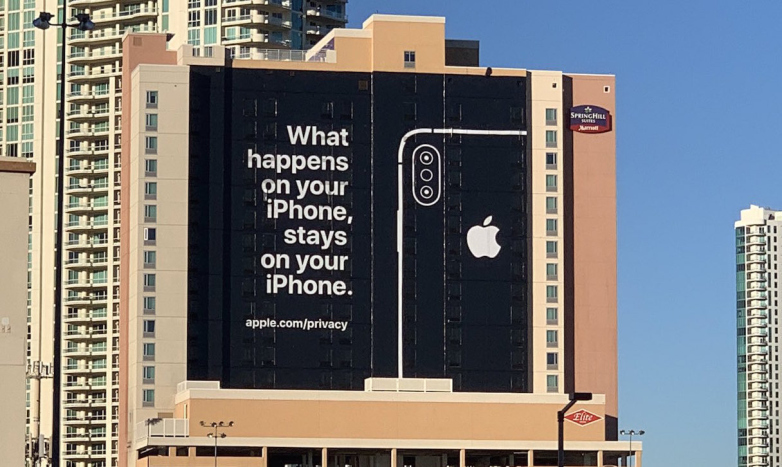
Image Credit: Chris Velazco.
The year started with bad news for Apple's investors ahead of the Q1 results, partially blaming lower-than-expected iPhone sales, especially in China.
Apple also made a couple of unexpected appearances at CES:
- first with a bold stance on privacy (see image above), which is simply perfect as CES is basically a huge Smart TV show, and Smart TVs are a privacy nightmare.
- second with multiple Smart TV collaborations, where manufacturers cannot access to user data, and where new TV models would get AirPlay 2 support, along with an iTunes app and/or a HomeKit app.
Ironically, January ends with a huge privacy issue for Apple: a new discovered iOS bug let users hear another person's audio before a FaceTime call was answered. Apple was prompt in fixing it.
References
- Letter from Tim Cook to Apple investors
- Ahead of CES, Apple puts up billboard touting iPhone security
- Apple’s TV industry embrace was an inevitable surprise
- Serious FaceTime Bug Lets You Hear a Person's Audio Before They Answer
February

Image Credit: Bryce Durbin.
In February Apple made some changes among its leads announcing that Deirdre O’Brien would take over Angela Ahrendts's Senior Vice President of Retail title, as Angela, once Apple's highest paid employee, announced her plans to leave Apple.
But February is probably best remembered for Apple taking down Facebook's and Google's enterprise certificates.
These certificates are used for distribution of apps exclusively within an organization:
instead, two of the most data-powerful companies in the world were using these certificates to get even more data out of their users, which is obviously against Apple's guidelines.
On a fun note, both companies were also properly using these certificates to distribute apps to their employees for ordering food and other internal services: it must have been a couple of rough days.
Lastly, Apple continued its push on privacy by telling developers to either remove or properly disclose when apps record the user screen: failing to do so within 24h from Apple's warning, would result in a removal of the app from the app store.
References
- Apple names Deirdre O’Brien senior vice president of Retail + People
- Facebook pays teens to install VPN that spies on them
- Apple revokes Google’s enterprise iOS certificate, shuts down internal apps
- Apple tells app developers to disclose or remove screen recording code
March
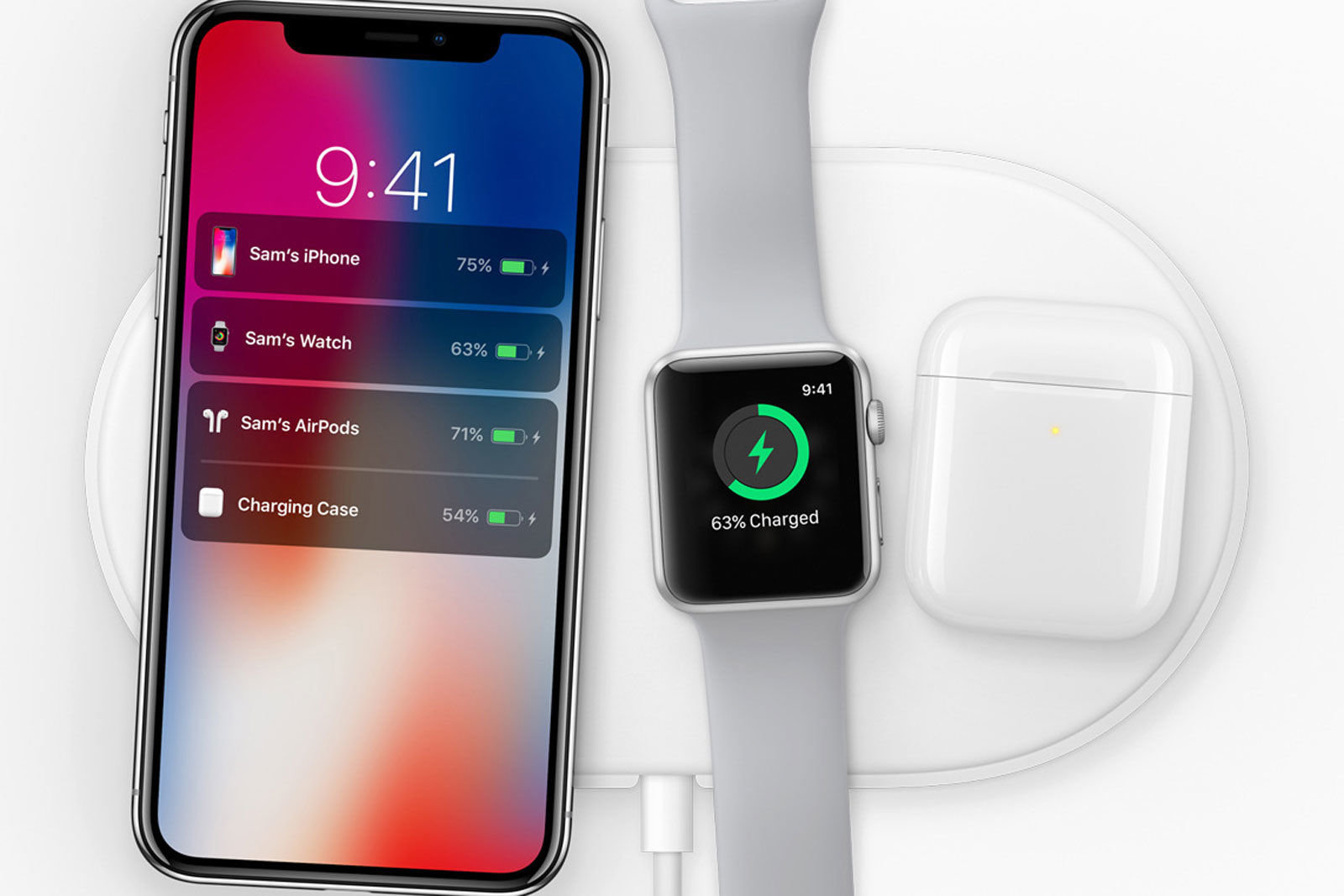
March was all about expansion with:
- new services such as News+, Tv+, Arcade, and Apple Card
- approval for a new iPhone Factory in India
- Apple Watch ECG capabilities landing in Europe
Then there was some drama between Apple and Spotify, with Spotify launching timetoplayfair.com, Apple responding accordingly, and lastly triggering an EU investigation against Apple (that has gone nowhere so far).
Lastly, March was the month that put an end to AirPower:
after multiple rumors and delays, Apple reached out the media to announce that AirPower was not going to happen. 🕯
References
- Apple Partner Wistron Gets Initial Approval for New iPhone Factory in India
- Addressing Spotify’s claims
- Apple Announces News+, Tv+. Arcade, a new Tv app, Apple Card
- Apple Brings Watch With ECG App & AFiB Feature to Europe
- Apple cancels AirPower product, citing inability to meet its high standards for hardware
April

April has seen a new push on green with Apple:
- offering $9.7M to the City of Cupertino for public transportation projects (and to avoid taxes)
- announcing that its number of suppliers that run on 100 percent clean energy has reached 44 (nearly doubling last year number)
- opening a new recycling lab in Austin to improve Apple's processes.
However, the most important news of this month, and probably of the whole year, is the new deal between Apple and Qualcomm, thanks of which Qualcomm will ship modems to Apple until 2025.
Take note that this deal is not just about 5G modems, that's the least interesting part, the most important part is that Qualcomm will share all of its know-how with Apple for the length of the agreement:
after Intel has failed (again) to compete in the mobile world, Apple found itself choosing between building its own modems (which takes years), or give in and accept Qualcomm's "unfair" conditions (according to Apple).
With this new deal, guess who has now six more years to prepare before building its own modems?
References
- Apple Offers City of Cupertino $9.7M for Transportation Projects to Avoid Business Tax
- Apple tops clean energy goal with new supplier commitments
- Apple Opens Material Recovery Lab in Austin to Improve Recycling Efforts
- Apple and Qualcomm Reach Settlement, Agree to Drop All Litigation
May
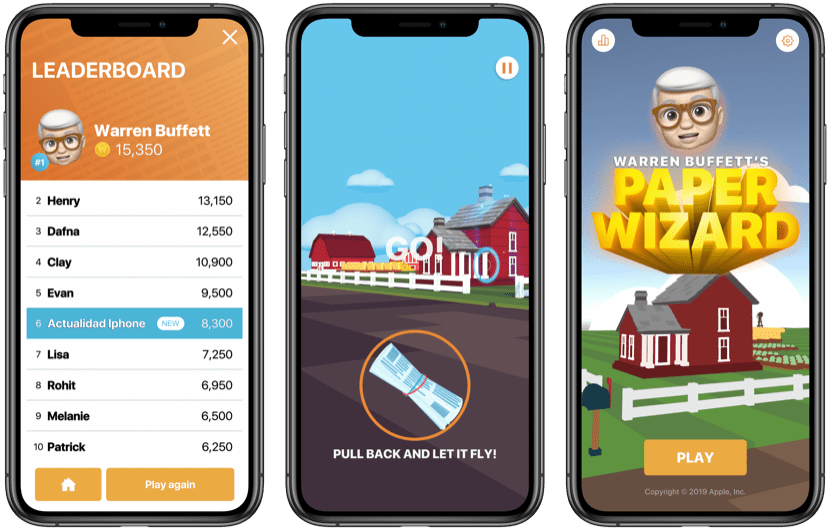
Image Credit: actualidadiphone.com
In a new interview Tim Cook disclosed that Apple has bought 25 new companies in the last 6 months, of which, for most of them, Apple's goal is to "primarily looking for talent and intellectual property".
Then Apple released its first new game in 10 years, dedicated to Warren Buffett, a.k.a. the owner of 5% of the company.
Lastly, Apple made a surprise announcement at the TRANSACT conference, which consists of new NFC special tags that trigger Apple Pay purchases, without the need to download any app:
among its first partner there are Bird scooters, PayByPhone parking meters, and more.
References
- Apple's CEO Interviewed by CNBC & talked about Warren Buffet and Acquiring 20 to 25 Companies in the last 6 months
- Warren Buffett's Paper Wizard' is Apple's First iPhone Game Since 2008
- Apple announces support for Apple Pay NFC stickers, partners with Bird scooters and more
June
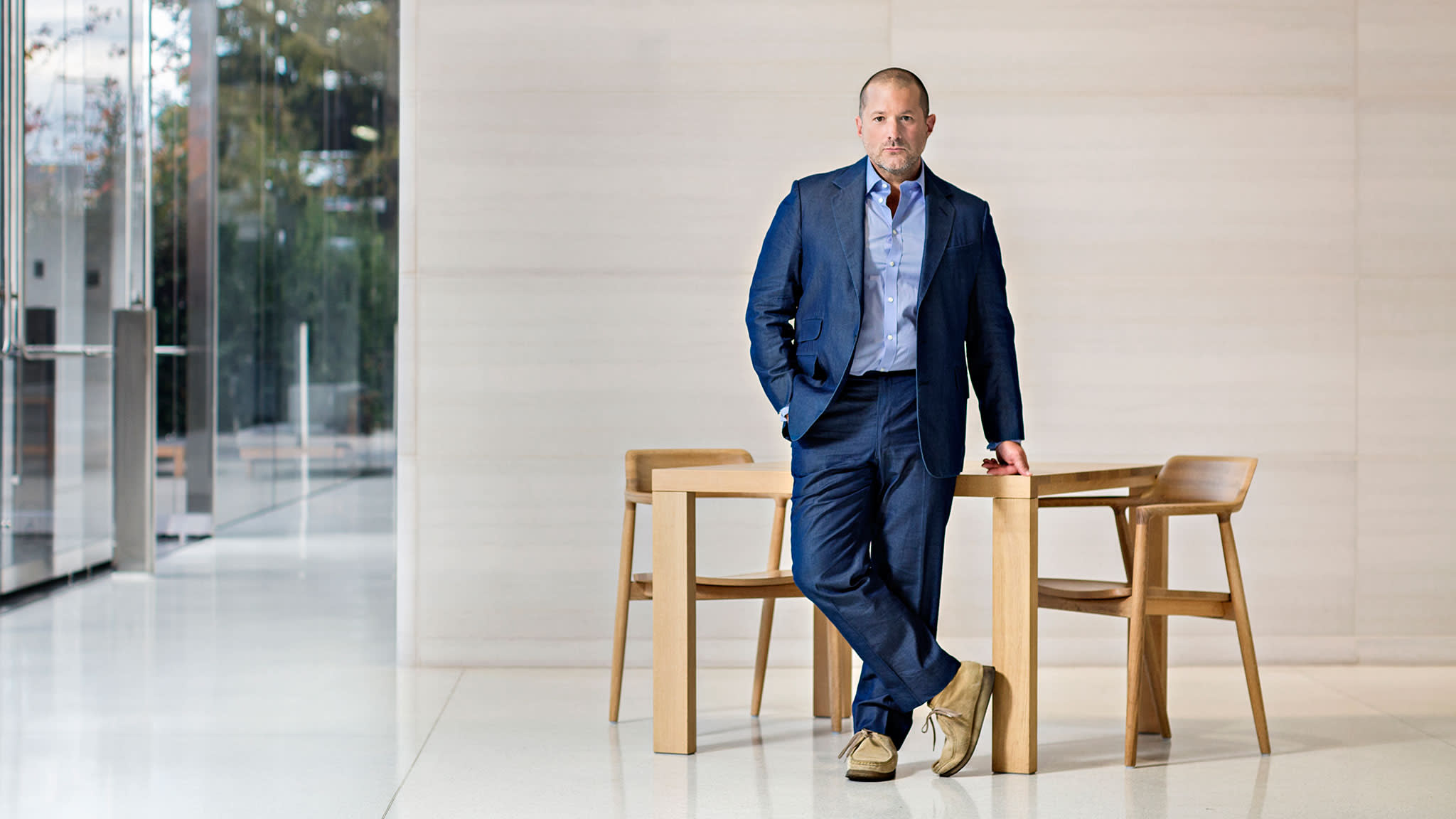
Image Credit: Financial Times
June started with a boom thanks to one of the biggest Worldwide Developers Conference of the decade.
Apple also cancelled its plans to build a second european data center and, instead, focus on expanding the brand new datacentre in Denmark.
As always, Apple continued to:
- extend its reach by joining the Cloud Native Computing Foundation (Kubernetes, Prometheus, and more)
- weak its dependency from China by investing $100M in the Japanese LCD panel supplier JDI
In a surprising, kind of expected, announcement, Apple’s Chief Design Officer Jony Ive is leaving Apple.
References
- Everything Apple announced at WWDC 2019
- Apple cancels plans to build second European datacentre in Denmark
- Apple Joins Cloud Native Computing Foundation
- Apple to Invest $100 Million in LCD Panel Maker Japan Display
- Jony Ive to form independent design company with Apple as client
July

Apple continues its transparency push by publishing a new report with all App Store take down requests, from any government.
A year late, to celebrate the App Store 10th year anniversary, Apple has revived its classic game Texas Hold’em (that was last updated in 2008!).
July was a bad month for privacy, as Apple got hit with a new (Apple Watch's) Walkie talkie bug, and then with the Zoom vulnerability: both cases let the user live audio/video be sent to others without the device owner consent.
Lastly, in July Apple made its biggest acquisition since Beats from 2014: Intel's smartphone modem business.
Shortly after April's Qualcomm deal, Intel announced its exit from the 5G smartphone modem business, which left an entire engineering division, and, especially, a ton of Intel's patents, up for grabs: Apple wasted no time in closing this deal.
References
- Apple Shares Government App Store Takedown Requests in Latest Transparency Report
- Apple revives classic Texas Hold’em iOS game to mark 10 years of the App Store
- Apple temporarily turns off Walkie Talkie to fix eavesdropping bug
- Apple pushes new silent updates to address vulnerable Zoom software
- Apple to acquire the majority of Intel's smartphone modem business
August
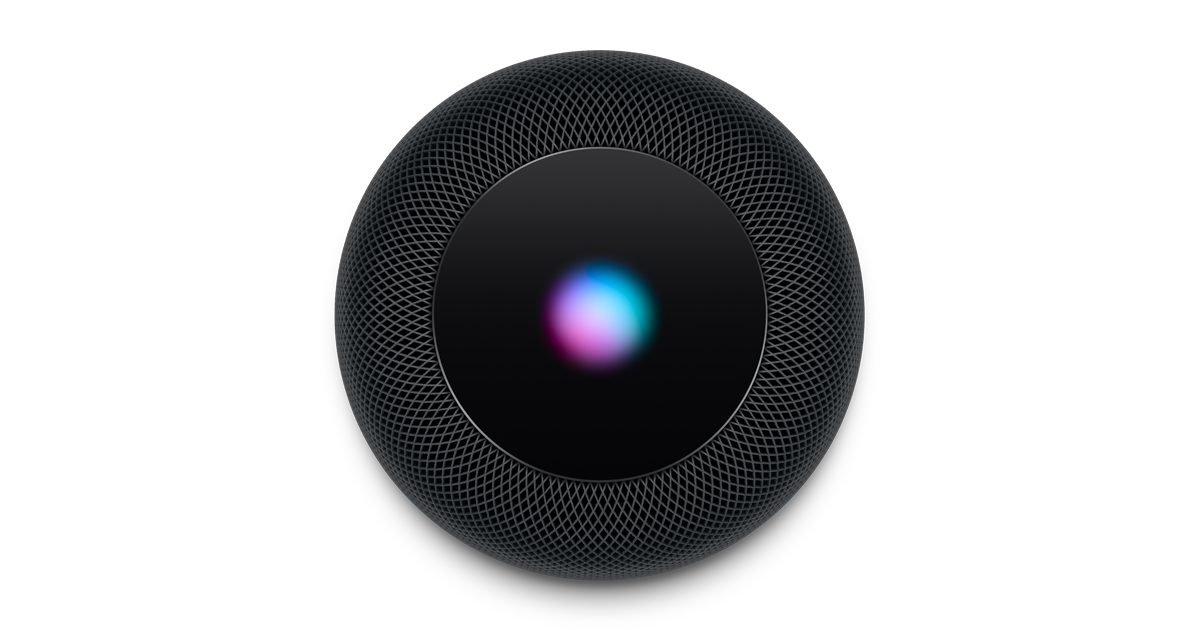
After all the privacy and transparency focus shown, Apple was caught giving away unauthorized HomePod user voice recordings to external contractors. Apple stopped this as soon as the news broke: regardless, this is not the expected behavior from Apple.
August was another good month for Apple customers in India, as the country has given Apple the green light to start selling its products online.
This is also the month where Apple opened up a little by:
- allowing independent shops to do authorized repairs
- giving away easily-hackable phones to selected researches, in order to make it easier for them to find, and report, iPhone weaknesses
References
- Apple stops letting contractors listen to Siri voice recordings and will offer opt-out later
- Apple Hands Hackers Secret iPhones In A Bid To Boost Security
- Apple to Start Online Sales in India After Country Eases Rules
- Apple offers customers even more options for safe, reliable repairs
September
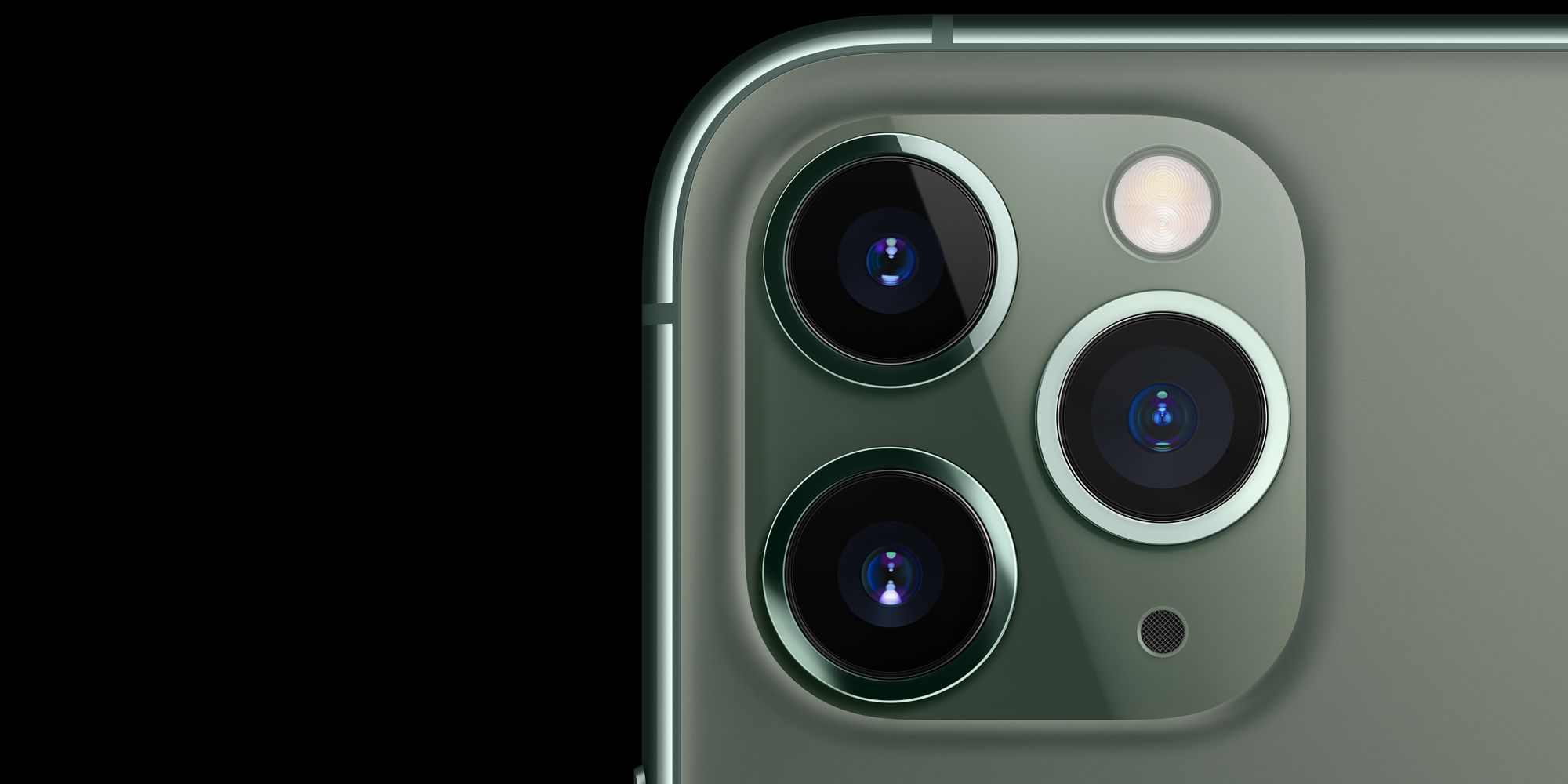
Google tried to shame Apple on some 0-day vulnerabilities, but Apple quickly revealed the truth.
More good news for Asia as Apple invested $1 Billion to boost iPhone manufacturing and export in India, and also Apple-funded China Clean Energy Fund showed its first results.
In case you didn't notice, this month Apple also released its first three-rear-cameras iPhone.
References
- A message about iOS security
- Apple set to ring in $1 billion investment
- Apple-launched China Clean Energy Fund invests in three wind farms
- iPhone 11
October

I'm not proud of this month, as Apple has shown how it is easily manipulated by China:
- by pulling the crowdsourced Hong Kong app that enabled its citizens to locate both pro-democracy activists and Chinese Militia
- by telling makers of Apple TV+ shows to not anger China
- by getting caught sending IP address of its Chinese users to Tencent
- by extending the iOS Taiwanese flag emoji 🇹🇼 censorship to users in Macau and Hong Kong
Apple has grown more and more dependent on China over the years, and it is clear from all its investments that it is pushing hard and fast to put its eggs in other baskets, however, for the moment, Apple (and its suppliers) have to play nice with China.
References
- After China Objects, Apple Removes App Used By Hong Kong Protesters
- Apple Told Some Apple TV+ Show Developers Not To Anger China
- Apple insists it's totally not doing that thing it wasn't accused of: We're not handing over Safari URLs to Tencent – just people's IP addresses
- Apple bows to China by censoring Taiwan flag emoji
November

Image Credit: MacWorld
Apple promoted AR headset, AirPods, iOS, marketing executives to vice presidents, this is the biggest leadership change since Angela Ahrendts's and Jony Ive's departures.
Apple continues being adamant in not hiring remote workers:
instead of hiring talent around the world, Apple announced that is is going to commit $2.5 billion in order help tackle California housing crisis.
While we're waiting to see what's going to happen to the privacyisimportant.com domain, bought by Apple earlier this year, Apple has overhauled its Privacy page.
This month Apple started working on its new $1 billion Austin Texas Campus.
Four years later, Apple has released a Macbook with no keyboard issues, we can finally shift our focus/hopes back to Apple's innovation and look forward to an ARM Macbook!
References
- Apple Names Five VPs, Including Return of Early iPhone Executive
- Apple announces $2.5 billion plan to help tackle California housing crisis
- Apple Reveals Major Update to Its Privacy Webpage
- Apple Breaks Ground on New Austin Texas Campus as Production begins for the All-New Mac Pro
- Macbook Pro 16-inch
December
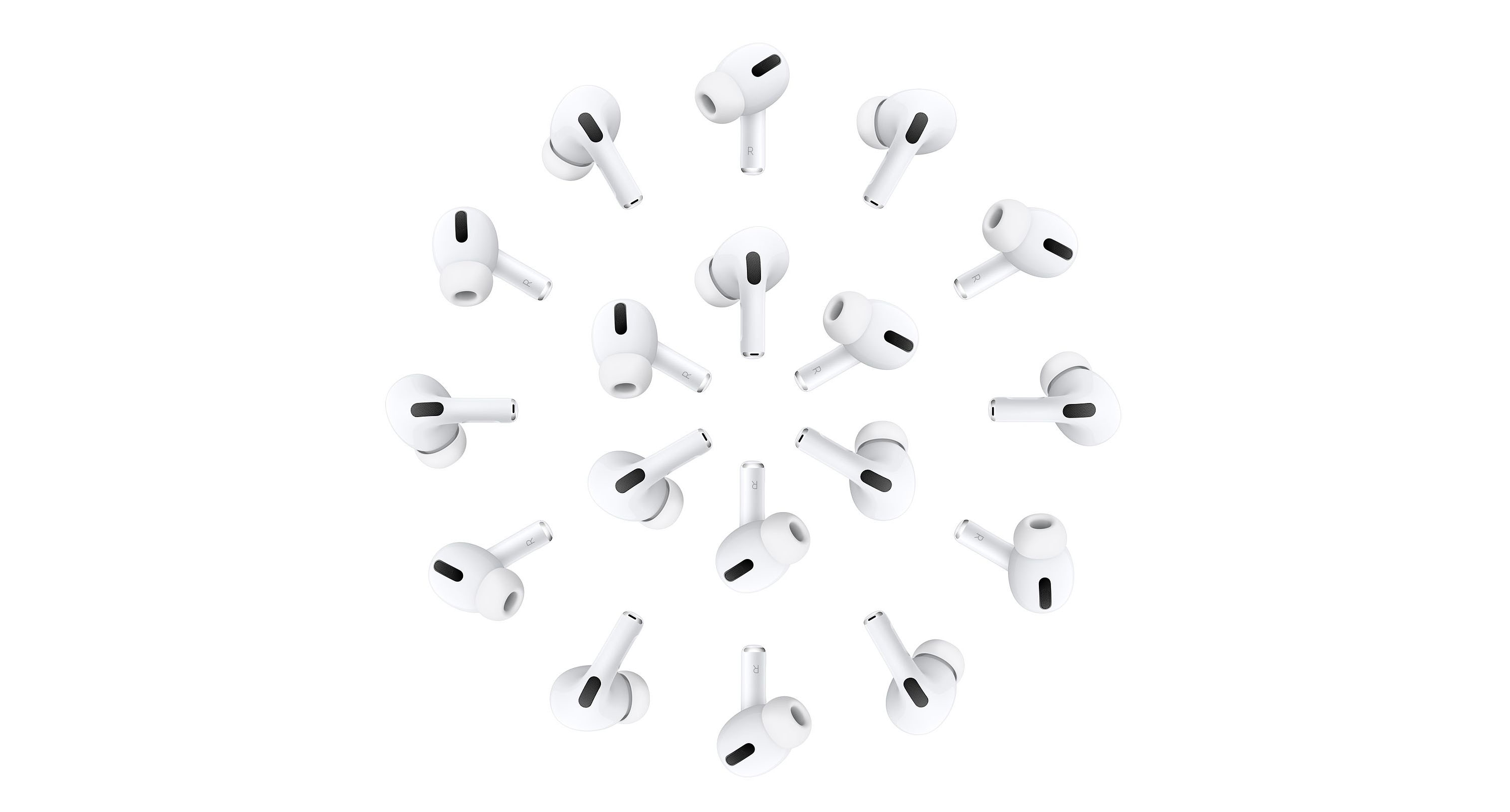
December started with Apple being under fire for enabling location services on the latest iPhones even when all the location-related settings have been explicitly turned off, it turned out it was because of the new U1 chip: Apple promised to let users to disable this location service in a following update.
After stalling for six years, the Mac Pro is back, more configurable, more powerful, and more expensive than ever (yet not overpriced).
Despite backorders, the AirPods are so successful that are on track to pass peak iPod sales.
After Apple Music launching on Alexa devices last year, from now on you can also play Apple Podcasts on Amazon Echo devices.
References
- The iPhone 11 Pro’s Location Data Puzzler
- Apple Explains Mysterious iPhone 11 Location Requests
- Mac Pro
- AirPods to hit quarterly sales of $4B, surpassing peak iPod sales
- You can now ask Alexa to play Apple Podcasts on Amazon Echo speakers

Want to learn Combine? - Practical Combine teaches you Combine from the ground up. Whether you plan to use it in a SwiftUI or a UIKit app, Practical Combine will help you understand and apply the principles of Functional Reactive Programming in no-time.
Conclusions

I believe these 12 months went very well both for Apple and its customers.
From the customers point of view:
- Some devices got cheaper, while still maintaining the high quality that we all expect
- Many products got quiet spec bumps throughout the year: until recently Apple was known to refresh a device once and leave it untouched for a few years (remember the old Macbook Air? Mac Pro? iPad Air? iPod Touch?), these constant upgrades, even minor ones, if kept up in 2020 and later, will make sure that Apple's line up will stay fresh and customers don't need to worry about buying outdated hardware at full price
- Speaking of products, this year Apple released a lot of product features seemingly based on customers feedback: cheaper, longer battery iPhones, non-butterfly keyboard with escape key Macbook pros, and more
- Apple's privacy push, beside a few speed bumps here and there, is a very good trend for all customers, even non-Apple ones
From the company point of view:
- product diversification widened, especially with the new, hard push on services (and subscriptions), available even on non-Apple products, I don't see this trend slowing down anytime soon
- the modem chipsets situation is the best it has ever been
- sales seem to be going well, especially with new government deals that will lower/lowered Apple's product prices in emerging markets
- one of Apple's major weaknesses, China, while still strong and very real, is getting less and less relevant, this is another trend I'm sure we will see for years to come, and not only from Apple and its suppliers
That's it for 2019, this is just a small glimpse of what happened during the year, and I hope to have covered all major events: if you believe I've missed something, please let me know!
What trends do you think we will witness in 2020? Any big change? Major acquisitions? I'd love to hear your thoughts!
Thank you for reading and please stay tuned for more articles!